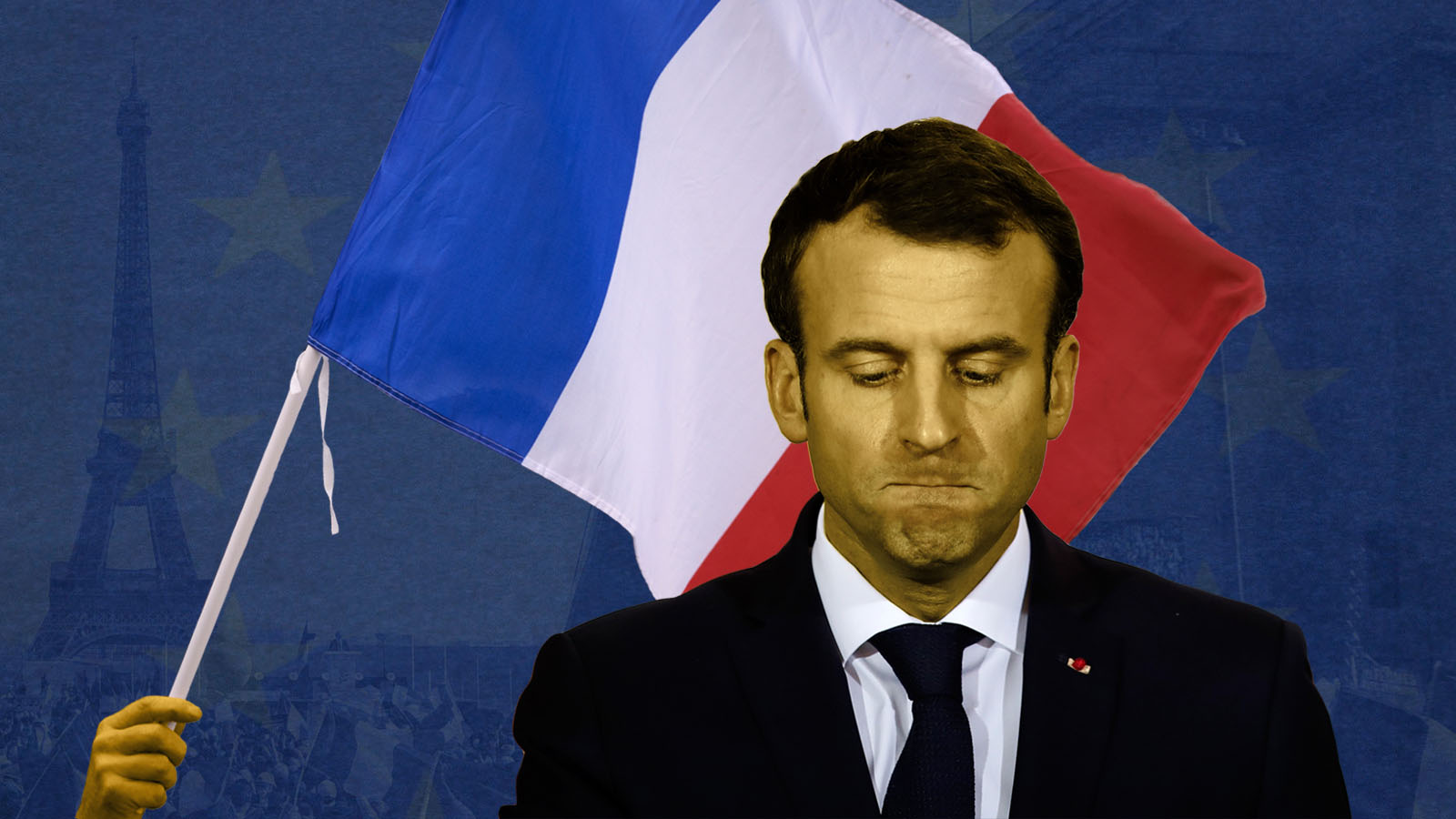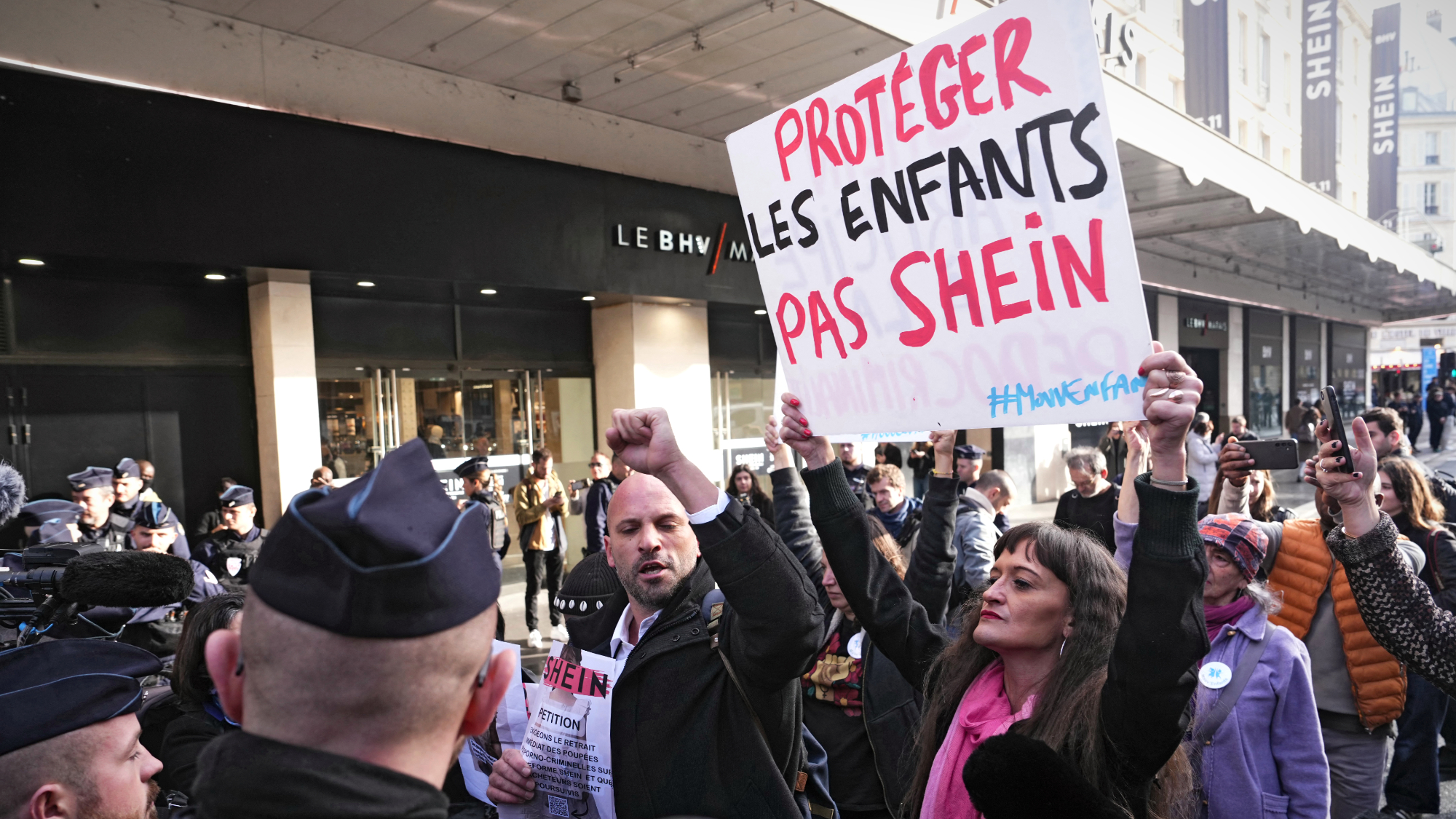What's next for France?
Macron lost his majority. Now what?


A free daily email with the biggest news stories of the day – and the best features from TheWeek.com
You are now subscribed
Your newsletter sign-up was successful
In legislative elections held Sunday, the political bloc supporting French President Emmanuel Macron lost its absolute majority in the National Assembly, hamstringing the newly re-elected president and raising questions about the future of French politics.
Ungovernable!
Results show Macron's alliance — Ensemble — won 245 seats in the National Assembly, well short of the 289 needed for an absolute majority. The newly formed left-wing alliance known as the New Popular Ecological and Social Union (NUPES) came in second with 131 seats, followed by Marine Le Pen's right-wing National Rally (RN) with 89 and the center-right Republicans (LR) with 61.
The results prompted two prominent newspapers to publish headlines declaring France ingouvernable — ungovernable. Macron's second-term legislative agenda, which included pension reform and raising the retirement age, is likely dead on arrival.
The Week
Escape your echo chamber. Get the facts behind the news, plus analysis from multiple perspectives.

Sign up for The Week's Free Newsletters
From our morning news briefing to a weekly Good News Newsletter, get the best of The Week delivered directly to your inbox.
From our morning news briefing to a weekly Good News Newsletter, get the best of The Week delivered directly to your inbox.
The president has few options moving forward. He could go, hat in hand, to the Republicans, but they'll demand a high price for their cooperation. He could also dissolve the National Assembly and call for new elections, but there's no guarantee he'd fare any better in them.
Writing for The Spectator World, Jonathan Miller noted that Macron didn't just lose his majority. He also lost several "crucial parliamentary allies."
Despite Macron's decisive victory in April — he defeated Le Pen by about 17 points — the newly re-elected president is deeply unpopular. As of June 1, his job approval rating stood at a meager 39 percent, and the legislative election results have likely dragged that number even lower. Kimberly Tower — a Fulbright scholar studying French politics — compared Macron to President Biden in the United States. People voted for him to defeat a right-wing candidate they feared and despised, "not because they liked him," she told The Week.
The left isn't dead
Writing for The Washington Post, James McAuley argued that the success of Jean-Luc Mélenchon's NUPES alliance showed that the French left is "far from dead; it was just previously fragmented."
A free daily email with the biggest news stories of the day – and the best features from TheWeek.com
"For months — and even years — a frequent refrain of political commentary has been that the 'left is dead,' a storyline seemingly confirmed by the disastrous end to François Hollande['s] left-wing administration in 2017," McAuley wrote. "But what the rise of NUPES has shown ... is that a muscular left is possible."
Ahead of the election, Mélenchon declared his intent to capture a majority in the National Assembly and get himself appointed prime minister. Once in office, he planned to lower France's already low retirement age, increase the minimum wage, and overhaul the constitution to reduce executive power.
It could work. French presidents can temporarily delay legislation but do not wield an American-style veto, meaning that during periods of cohabitation the prime minister is the one setting the domestic policy agenda.
Miller believes that the leftist firebrand "will never be prime minister," though he also predicts that Macron's chosen PM, Élisabeth Borne, will last less than a year. Borne, who was appointed before the legislative elections, is a "technocrat" with "the political charisma of a carrot," Miller wrote.
The French president can technically appoint anyone to be prime minister, but the National Assembly can also force the prime minister to resign by a simple majority vote. This means that a coalition representing a majority of députés could, in effect, force the president to appoint whoever they want. No such coalition currently exists, but without an Ensemble-led majority to protect her, Borne is highly vulnerable.
The rise of the far-right
For many observers, the biggest story of the legislative elections was not the success of NUPES or the rebuke to Macron, but the strong showing made by RN. Le Pen's party, once a pariah in French politics, jumped from eight seats in the National Assembly to 89 seats.
Jack Wolfsohn, writing for National Review, points out that, "[f]or the first time, National Rally has enough representation to pursue seats on committees, including those focused on foreign affairs and national defense" and to "initiate a censure motion against Macron's government, potentially leading to a vote of no confidence." This development, he wrote, "is not in the best interest of France or its people."
The right-wing wave is due in part to Macron's own ambivalence. Tower explained that French candidates who fail to advance past the first round often instruct their supporters to vote for one candidate or the other in runoffs. LR candidate Valérie Pécresse, for example, urged her voters to back Macron over Le Pen in the second round of the presidential race. In the legislative elections, however, the president's party — La République En Marche — gave no such instructions for runoff contests between NUPES and RN, sending the message that they viewed the far-left and far-right as equally dangerous.
For many NUPES supporters, this was a grievous betrayal. Macron aggressively courted left-wing voters ahead of the April 24 presidential runoff and has touted himself as the man who blocked the far-right from power. "72% of LREM voters abstained in the second round NUPES vs RN. We will never accept any lectures again. The Republic means nothing to these people. Let shame and dishonor choke them," NUPES strategist Bastien Parisot wrote on Twitter, later clarifying that he blamed the politicians, not the voters.
Grayson Quay was the weekend editor at TheWeek.com. His writing has also been published in National Review, the Pittsburgh Post-Gazette, Modern Age, The American Conservative, The Spectator World, and other outlets. Grayson earned his M.A. from Georgetown University in 2019.
-
 The ‘ravenous’ demand for Cornish minerals
The ‘ravenous’ demand for Cornish mineralsUnder the Radar Growing need for critical minerals to power tech has intensified ‘appetite’ for lithium, which could be a ‘huge boon’ for local economy
-
 Why are election experts taking Trump’s midterm threats seriously?
Why are election experts taking Trump’s midterm threats seriously?IN THE SPOTLIGHT As the president muses about polling place deployments and a centralized electoral system aimed at one-party control, lawmakers are taking this administration at its word
-
 ‘Restaurateurs have become millionaires’
‘Restaurateurs have become millionaires’Instant Opinion Opinion, comment and editorials of the day
-
 Does standing up to Trump help world leaders at home?
Does standing up to Trump help world leaders at home?Today’s Big Question Mark Carney’s approval ratings have ‘soared to new highs’ following his Davos speech but other world leaders may not benefit in the same way
-
 Le Pen back in the dock: the trial that’s shaking France
Le Pen back in the dock: the trial that’s shaking FranceIn the Spotlight Appealing her four-year conviction for embezzlement, the Rassemblement National leader faces an uncertain political future, whatever the result
-
 Can Starmer continue to walk the Trump tightrope?
Can Starmer continue to walk the Trump tightrope?Today's Big Question PM condemns US tariff threat but is less confrontational than some European allies
-
 EU-Mercosur mega trade deal: 25 years in the making
EU-Mercosur mega trade deal: 25 years in the makingThe Explainer Despite opposition from France and Ireland among others, the ‘significant’ agreement with the South American bloc is set to finally go ahead
-
 The billionaires’ wealth tax: a catastrophe for California?
The billionaires’ wealth tax: a catastrophe for California?Talking Point Peter Thiel and Larry Page preparing to change state residency
-
 Biggest political break-ups and make-ups of 2025
Biggest political break-ups and make-ups of 2025The Explainer From Trump and Musk to the UK and the EU, Christmas wouldn’t be Christmas without a round-up of the year’s relationship drama
-
 Bari Weiss’ ‘60 Minutes’ scandal is about more than one report
Bari Weiss’ ‘60 Minutes’ scandal is about more than one reportIN THE SPOTLIGHT By blocking an approved segment on a controversial prison holding US deportees in El Salvador, the editor-in-chief of CBS News has become the main story
-
 France targets Shein over weapons, sex dolls
France targets Shein over weapons, sex dollsSpeed Read Shein was given 48 hours to scrub the items from their website
